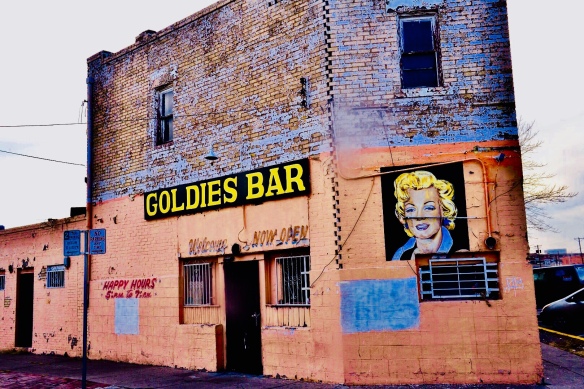The Wealthy Are Always Feasting
1.
Nocturno’s Sand Dial marks off the minutes before the bank takes my home. The Happiness of Loving My Brunette has been eclipsed by the misfortunes my brunette and I have experienced.
2.
Your mother forced you to carry ice for their whiskey, then shoved you out into the storm.
3.
When I took the est training in the seventies, that weird blend of encounter groups, Zen and Sado-Masochism, I learned that I choose everything that happens to me, but I’m having a hard time figuring out how I chose this.
4.
Her white boyfriend came out and caught you, drove you into the hill’s cold powder. The cabin lurched like a flogged Wyeth. Snow swirled.
5.
Miró (creator of Nocturno, The Happiness of Loving My Brunette, and several hundred paintings titled Woman Bird or Bird Woman) went to bed without any supper and saw shapes on the ceiling, which became his paintings.
My brunette and I look in the front window of the house we worked hard to acquire and now have lost. We spend some timeless time surveying Still Life with Old Shoe.
6.
To freely run my hands over your body, the softening of your eyes.
7.
I will assassinate painting, said Miró, I will break Picasso’s guitar.
8.
In a photo I’m expressionless, on stiff legs in front of a shuttered hotel. Your heartbeat is a tension in my chest.
9.
I kick in the front door. I remember once fixing the hinges.
10.
Heart shredded, my body dehydrates as we distance until my skin is ground chalk. The wealthy are feasting tonight.
11.
I have this sensation, one I never had in all my days as a millworker and carpenter: Hands Flying Off Toward the Constellations.
The wealthy are always feasting.
Mitchell Krockmalnik Grabois has had over fourteen hundred of his poems and fictions appear in literary magazines in the U.S. and abroad. He has been nominated for numerous prizes, and. was awarded the 2017 Booranga Writers’ Centre (Australia) Prize for Fiction. His novel, Two-Headed Dog, based on his work as a clinical psychologist in a state hospital, is available for Kindle and Nook, or as a print edition. To read more of his work, Google Mitchell Krockmalnik Grabois. He lives in Denver, Colorado, USA.

